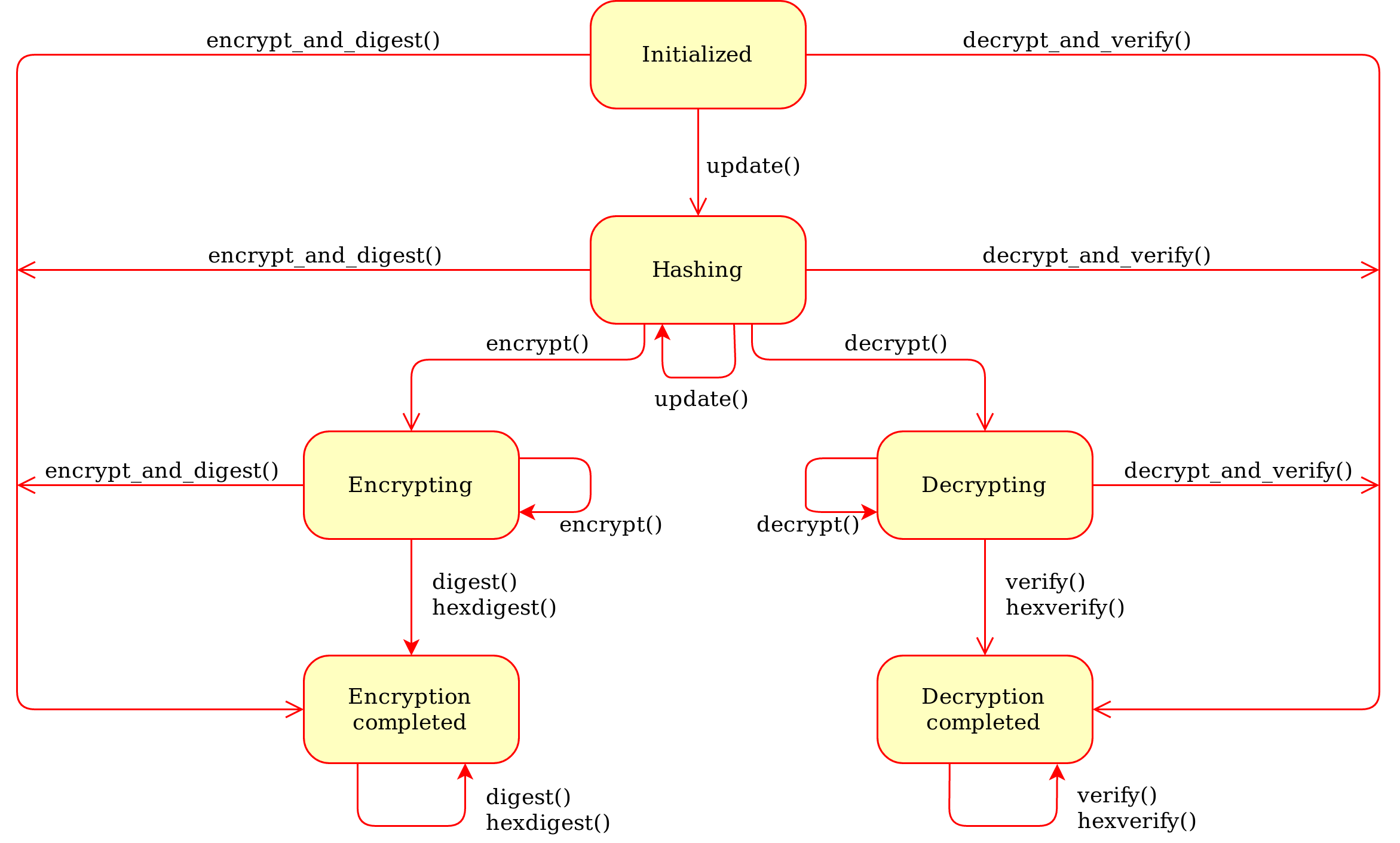I am working on an encryption program with Pycryptodome in Python 3. I am trying to encrypt a (byte) string and then decrypt it and verify the MAC tag. When I get to verify it, an error is thrown.
This is the code:
from Crypto.Cipher import AES
from Crypto.Random import get_random_bytes
aes_key = get_random_bytes(24)
aes_cipher = AES.new(aes_key, AES.MODE_GCM)
encrypted, MACtag = aes_cipher.encrypt_and_digest(b"A random thirty two byte string.")
# Imagine this is happening somewhere else
new_aes_cipher = AES.new(aes_key, AES.MODE_GCM, nonce=aes_cipher.nonce)
new_aes_cipher.verify(MACtag)
decrypted = new_aes_cipher.decrypt(encrypted)
And this is the error:
Traceback (most recent call last):
File "aespractice.py", line 10, in <module>
new_aes_cipher.verify(tag)
File "/Library/Frameworks/Python.framework/Versions/3.6/lib/python3.6/site-
packages/Crypto/Cipher/_mode_gcm.py", line 441, in verify
raise ValueError("MAC check failed")
ValueError: MAC check failed
I've looked at the documentation, and I it looks to me like everything is all right. Why do you think the program is acting this way? Any help would be appreciated.

